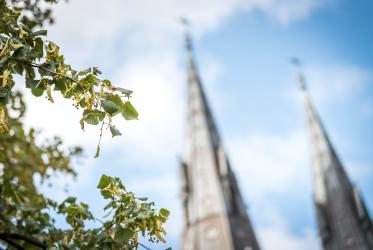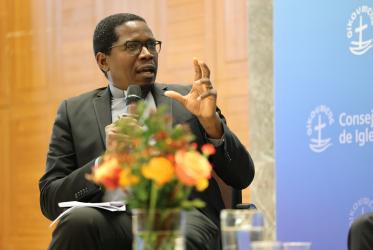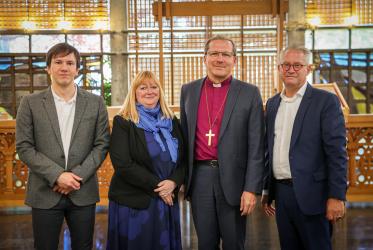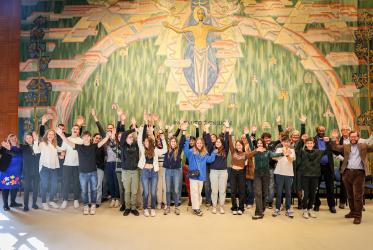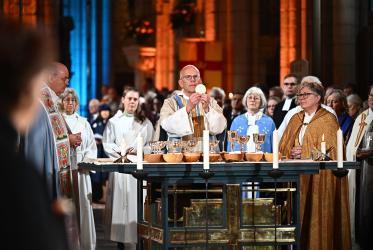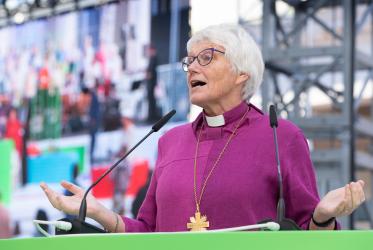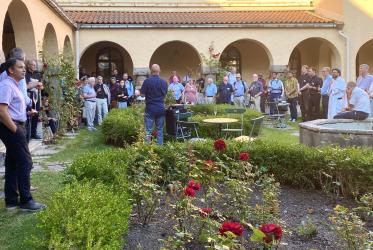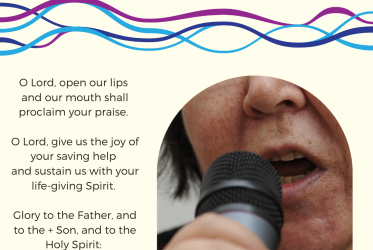Displaying 1 - 20 of 76
15 February 2024
Swedish Mission Council hears WCC reflections on faith in democracy
07 February 2024
WCC hosts visitors from Finland, Germany, and Sweden
29 September 2023
Uppsala 1968: The times, they were a’changing
06 September 2022
Morning Prayer for Monday, 15 March 2021
15 March 2021
Driven by God’s grace and a sense of duty
05 November 2020
ÖRK auf Leitungsebene von Religions for Peace stark vertreten
07 October 2019
WCC well-represented in Religions for Peace leadership
07 October 2019
WCC pays tribute to ecumenist pioneer
08 May 2019
